This post has not been edited by the GamesBeat staff. Opinions by GamesBeat community writers do not necessarily reflect those of the staff.
This article contains minor plot spoilers for L.A. Noire.
L.A. Noire is bullshit.
OK, I’m being a bit hyperbolic — let me back that up: L.A. Noire is an incredible story/feeling/theme/experience/thing designed around the tropes of the “video game” as a medium. And that's a bad thing.
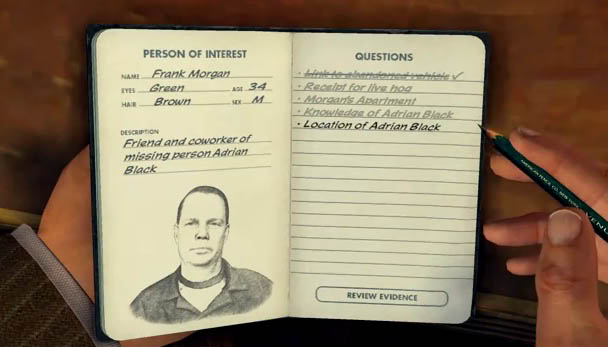
I’m wrapping up the second homicide case. My excruciating attention to detail has paid off, and I have a stack of evidence a mile high. There’s only one problem: All of this evidence points equally at two different suspects. Neither suspect has an alibi, both have histories of violence, and both are liars…despite impeccable police work, I’m stuck.
There’s one more piece of evidence I’m waiting on: a blood test. But the results never come.
I should investigate the work places of both suspects to match their respective uniforms to one found at the crime scene. But I can’t do that, either. I have the captain breathing down my neck, and I need to charge one of them. Being the good detective that I am, I go with the one for whom I have the most concrete evidence against.
And I’m wrong. My captain puts me in my place, and I miss out on that coveted five-star rating for solving the case.
So after all of that extensive police work, doing everything the game told me to do…the case comes down to a wild guess. That’s it. And even though I made the guess that anyone would make — the one with the most evidence — I’m wrong?
Bullshit.
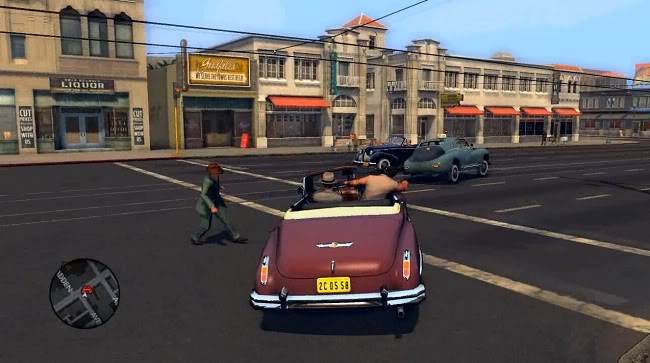
Investigating the apartment of a couple of overdosed junkies, I find something curious: a numbered slip, like a betting stub or a lottery ticket or something. At a nearby restaurant frequented by the victims, I find a stack of the things. Now, I’m no expert on gambling in 1947, but I’ve watched enough T.V. to know a gambling racket when I see one.
“Tell us about the numbers,” I…er…“politely” inquire.
“Man, the numbers are the white man’s tax on poor folk!”
…What the hell does that mean?! How do my options of “Truth," "Doubt," or "Lie” apply to that response at all? How does that response apply to my question? Where is my, “You didn’t answer the question, like, at all” button?
Bullshit.
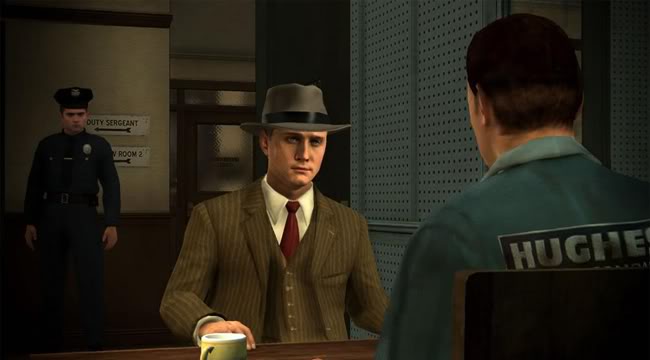
I’m questioning a real-estate tycoon about his company’s promotional flyers found, coincidentally, near the site of every crime scene in a string of arsons.
“My company runs many promotions. I’m not familiar with that one.”
OK. I know he’s lying, but I can’t prove anything. I don’t have any evidence that he has personal knowledge in this specific promotional run by his huge company. I choose “Doubt,” since my gut tells me he’s lying, but I can’t prove it
Nope. Wrong. The correct choice was “Lie” and the so-called “evidence” was a flyer with his picture on it — the exact same picture that’s plastered on all of this company’s promotions from billboards and posters to, apparently, contest flyers. Now can you say, “circumstantial"?
Bullshit.
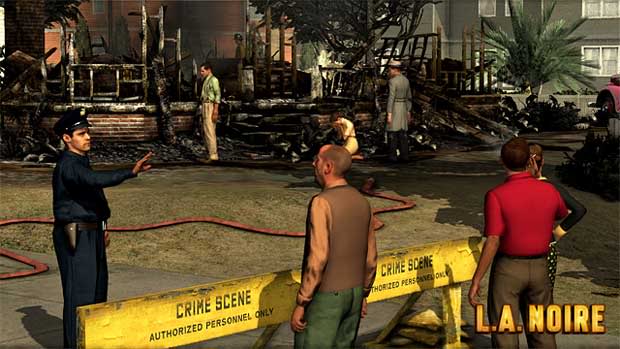
Now in L.A. Noire’s final few missions, rarely does a moment pass that doesn’t go like one of the above. In the first example, I see the game punishing me for playing it well — for playing as an investigator — instead of playing it the way they wrote it. Awesome.
The second example is just a case of bad dialogue; the words are fine, but the line doesn’t play to the mechanic. The questioning/decision-making mechanic of the game is built around information, so they give me a line that contains no information at all. Great.
The final example gets under my skin more than anything. An ambiguous line of dialogue, bad detective work as the “right” answer, a lack of adequate information to make an informed call (choosing “Lie” as the correct answer leads the man to provide information that — while vital — does not pertain to the question) — this one just has it all.
I couldn’t dismiss any of this as “bad design” without digging deeper. Ultimately, after a lot of beard-stroking and head-scratching, I found a place to squarely lay all of the blame: the game’s feedback.
I’m talking about the special, crime-scene music that only stops once you’ve found every clue; the chime that occurs when you sniff out an object (pixel hunting, anyone?); the constant tutorial reminders; the right/wrong checklist for interview questions; the experience points; and the rating at the end of each case.
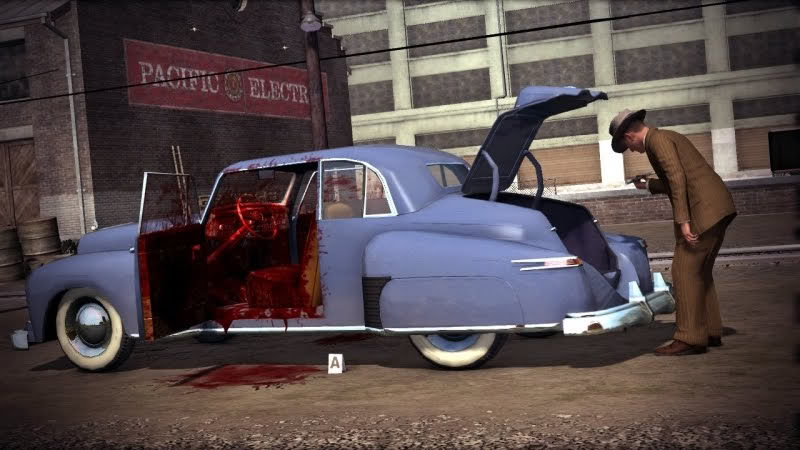
Played well, with all of its handicaps, L.A. Noire isn’t a difficult game. Be thorough, pay attention — you’ll do fine. The way I see it, backed into this corner as an effort to make their game more “accessible,” Team Bondi had only one way to ratchet up the difficulty: ambiguity.
So dialogue becomes intentionally misleading, “evidence” becomes more circumstantial, patterns that the game taught you to recognize get cast aside, and the story takes more and more of the spotlight away from gameplay. Increasingly, the player is shown more about what’s going on than Cole ever is. In order to play the game “right,” I have to deliberately dumb myself down to remember what Cole knows versus what I know.
Team Bondi and Rockstar went so far to make this new, innovative thing, and then backed off in the most rudimentary places and fell back on the most unnecessary qualities of the “video game” in order to…do what, exactly? Without ratings, without experience, without “gamey” feedback, I’d be allowed to just play and enjoy. I can’t figure out what place all of the stat tracking, feedback, and role-playing game elements have in L.A. Noire other than as “video-game stuff.”
And the game is worse for it.